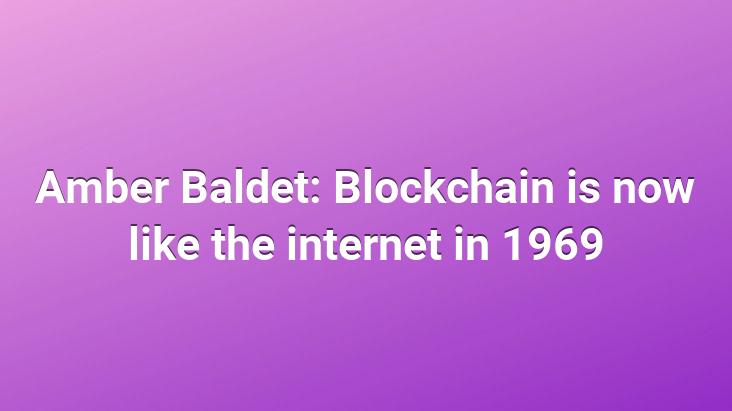Amber Baldet: Blockchain is now like the internet in 1969
Amber Baldet was the face of JP Morgan’s Blockchain ventures before leaving the bank to start her own venture earlier this month.
Former head of the bank’s Blockchain unit, Baldet was known as the bridge between Blockchain and the crypto world and Wall Street.
During her time at JPMorgan, Baldet worked at institutional investment bank Quorum, which strives around the bank’s Blockchain platform. He spoke to Insider about his cryer, Blockchain technology, and advice for young people.
Frank Chaparro: “There’s a lot of hyperbole in the crypto world.. Vitalik Buterin, the founder of Ethereum, has an interesting tweet that he thinks the crypto market deserves to be worth over $500 billion.. How effective do you think technology has been in this?”
Amber Baldet: “I think technology will be incredibly effective so I work every day. I know many people compare blockchain to the 90s of the internet.. We couldn’t have imagined anything like Netflix back then. So it’s impossible to stop here and look at what Blockchain’s functions will do.. Blockchain now looks like the Internet in 1969. However, this does not mean that Blockchain does not have any use.. We are far from full coverage of just what these networks can be used for.. There are many companies currently using distributed storage. It will be impressive to watch these innovations come to fruition.”
Chaparro: “Is it hard to be at the intersection of the old Wall Street and crypto cyberpunk worlds?”
Baldet : “What I hope to do about my work is breaking this distinction.. If we want to do something of internet value, cryptocurrencies, real-world assets, permissionless blockchains and private barriers will be our legacy.”
Chaparro: “A newcomer in crypto or financial services What are your recommendations for young people?”
Baldet: “This is a difficult question to answer.. It’s important to be yourself. I would say it’s important to stick to the features you can use. Also make sure your worldview is unique to you, being different isn’t bad. We don’t need millions of identical people solving the world’s problems.”
